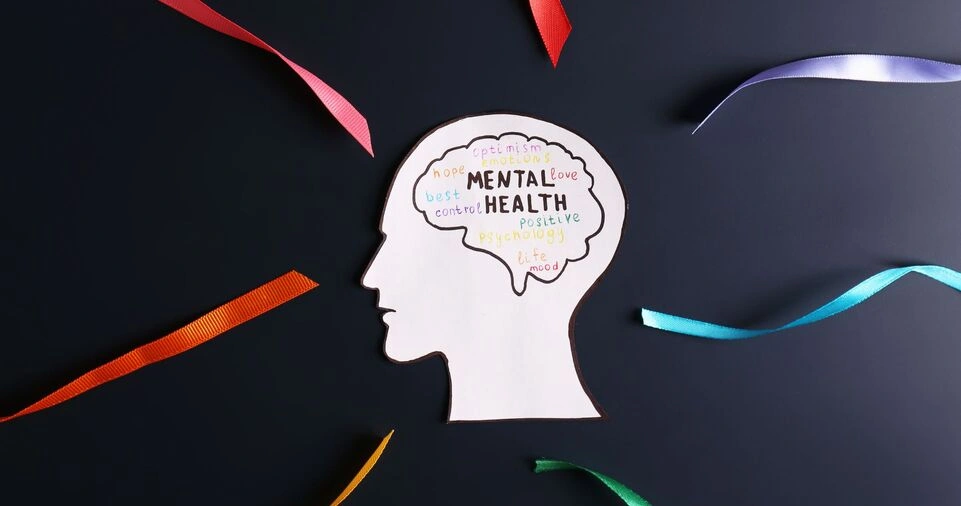Mental health plays a vital role in our overall well-being, yet many people neglect it in their daily lives.
With increasing stress, work pressure, social expectations, and lifestyle challenges, mental health issues have become more prevalent than ever.
Anxiety, depression, and chronic stress affect millions of people worldwide, often leading to a decline in productivity, relationships, and physical health.
However, just as physical fitness can be improved with small daily habits, mental well-being can also be enhanced with simple yet effective practices.
By integrating healthy habits into your routine, you can build resilience, manage stress, and improve your emotional state.
These habits don’t require drastic changes; rather, they are small, manageable steps that accumulate over time to create a significant impact.
In this article, we will explore practical ways to boost your mental health using everyday habits that are easy to implement.
Whether you’re dealing with stress, anxiety, or just looking to maintain a positive mindset, these tips will help you create a healthier and happier life.
Practice Gratitude Daily
The Power of Gratitude in Mental Health
Gratitude is a powerful tool that can transform your perspective on life. It shifts your focus from what you lack to what you already have, fostering a sense of appreciation and contentment.
Scientific studies suggest that regularly practicing gratitude can enhance emotional resilience, improve relationships, and increase overall happiness.
How to Cultivate Gratitude
Practicing gratitude doesn’t require much effort, but it does require consistency.
Here are a few ways to integrate it into your life:
- Maintain a Gratitude Journal: Every night, write down three things you are grateful for. These can be as simple as a good meal, a conversation with a friend, or an accomplishment at work.
- Express Gratitude to Others: Take time to appreciate those around you. Send a message of thanks to a friend or compliment someone’s effort.
- Practice Mindful Gratitude: During your daily activities, consciously acknowledge things you are grateful for, such as a sunny day or a peaceful moment.
By making gratitude a part of your routine, you train your mind to focus on positivity, reducing stress and increasing happiness over time.
Stay Physically Active

The Link Between Exercise and Mental Well-being
Physical activity isn’t just for maintaining a fit body; it also has profound effects on mental health.
Regular exercise releases endorphins—commonly known as “feel-good hormones”—which help reduce stress, anxiety, and depression.
Additionally, physical movement improves sleep quality, increases self-esteem, and enhances cognitive function.
Best Forms of Exercise for Mental Health
If you’re not a fan of intense workouts, don’t worry. You don’t need to spend hours at the gym to reap the mental health benefits of exercise.
Here are some effective activities:
- Walking: A 30-minute walk in nature can significantly reduce stress and boost your mood.
- Yoga and Stretching: These activities promote relaxation, mindfulness, and flexibility.
- Dancing: Whether at home or in a class, dancing is a fun way to elevate your mood.
- Strength Training: Lifting weights or bodyweight exercises help build confidence and discipline.
- Team Sports: Engaging in group sports fosters social interaction and reduces feelings of loneliness.
Incorporating movement into your daily routine, even in small doses, can have lasting benefits on your mental well-being.
ALSO READ: How to Stay Fit Without Going to the Gym
Get Enough Sleep
Why Sleep is Crucial for Mental Health
Sleep is a fundamental pillar of mental health, yet many people underestimate its importance.
Poor sleep patterns contribute to stress, irritability, difficulty concentrating, and an increased risk of mental disorders like anxiety and depression.
Lack of sleep affects the brain’s ability to regulate emotions and process information effectively.
Tips for Better Sleep Hygiene
To improve your sleep quality, try these strategies:
- Stick to a Sleep Schedule: Go to bed and wake up at the same time every day, even on weekends.
- Create a Relaxing Bedtime Routine: Engage in calming activities like reading, meditation, or gentle stretching before bed.
- Limit Screen Time Before Sleep: Exposure to blue light from screens disrupts melatonin production, making it harder to fall asleep.
- Optimize Your Sleep Environment: Keep your bedroom dark, cool, and quiet to promote restful sleep.
- Avoid Caffeine and Heavy Meals Before Bed: These can interfere with your ability to fall and stay asleep.
Making sleep a priority will lead to better emotional stability and overall mental well-being.
Eat a Balanced Diet

The Connection Between Diet and Mental Health
What you eat has a direct impact on how you feel. A diet rich in essential nutrients supports brain function and emotional stability, while poor eating habits contribute to mood swings, fatigue, and mental fog.
Best Foods for Mental Health
Incorporate the following nutrient-rich foods into your diet for optimal mental well-being:
- Omega-3 Fatty Acids: Found in salmon, walnuts, and flaxseeds, these support brain function and reduce depression.
- Antioxidant-Rich Foods: Berries, dark chocolate, and green tea help protect brain cells from oxidative stress.
- Probiotics: Yogurt, kimchi, and kombucha improve gut health, which is linked to mood regulation.
- Complex Carbohydrates: Whole grains, legumes, and vegetables provide steady energy and stabilize mood.
Avoid excessive processed foods, sugar, and caffeine, as they can contribute to energy crashes and irritability.
Limit Social Media Consumption
How Social Media Affects Mental Health
While social media connects us to the world, excessive use can lead to anxiety, depression, and comparison issues.
Studies show that people who spend too much time scrolling through social media often feel lonely, inadequate, and overwhelmed by unrealistic portrayals of life.
Ways to Use Social Media Mindfully
To maintain a healthy relationship with social media, try these tips:
- Set Time Limits: Use apps that track and limit your screen time.
- Follow Positive Content: Surround yourself with uplifting, motivational, and educational content.
- Take Digital Detox Breaks: Designate specific times in the day when you stay offline.
- Engage in Real-Life Interactions: Prioritize face-to-face conversations over virtual connections.
Using social media in moderation and with purpose can improve your mental clarity and overall well-being.
ALSO READ: How to Improve Customer Retention for Long-Term Success
Final Thoughts
Improving mental health doesn’t require drastic lifestyle changes. Simple habits, when practiced consistently, can make a significant difference in emotional resilience and overall happiness.
By practicing gratitude, staying active, getting enough sleep, eating a balanced diet, and using social media mindfully, you can take control of your mental well-being and lead a more fulfilling life.
Start implementing these small habits today and watch how they positively impact your mental health over time!

